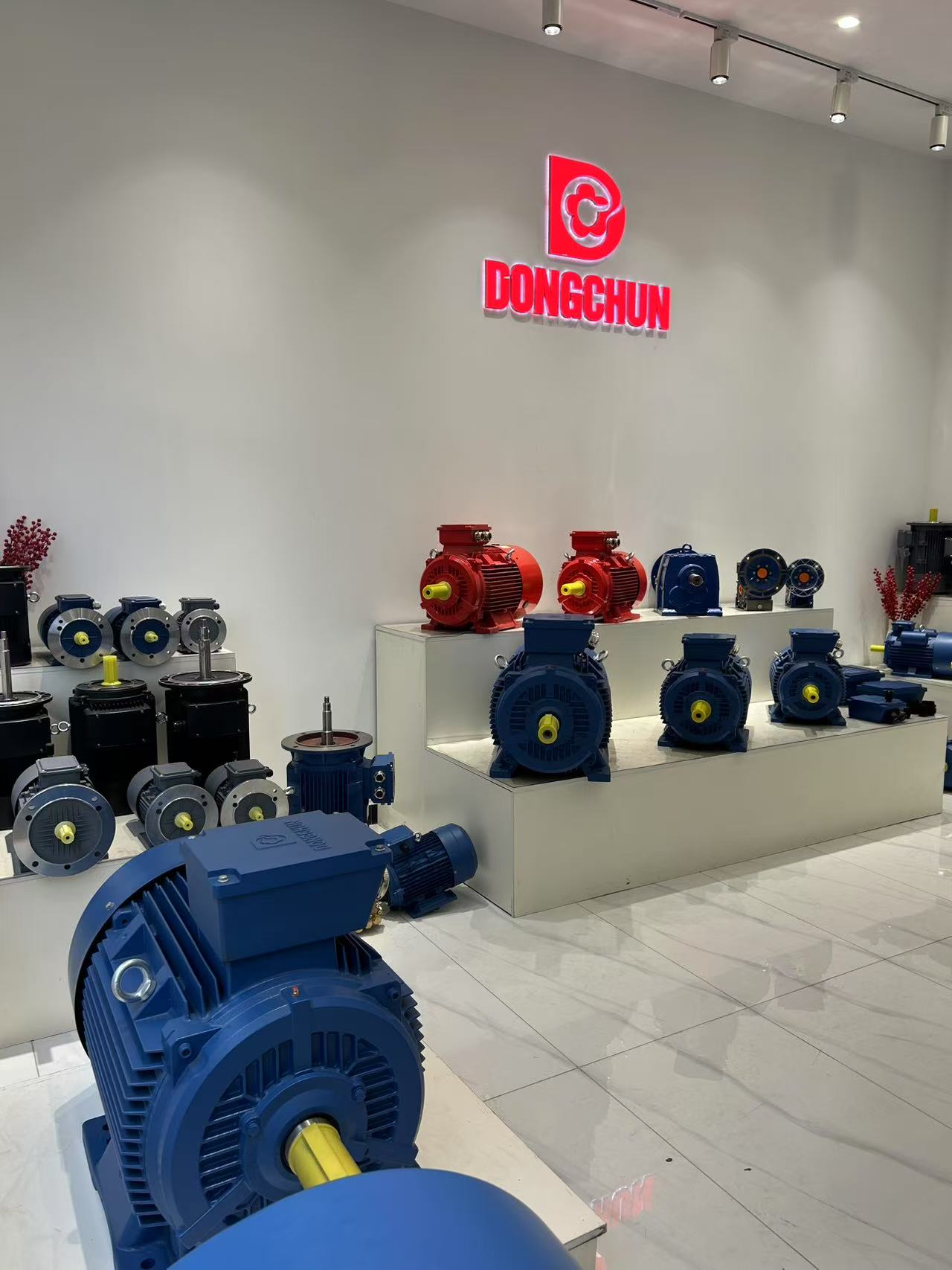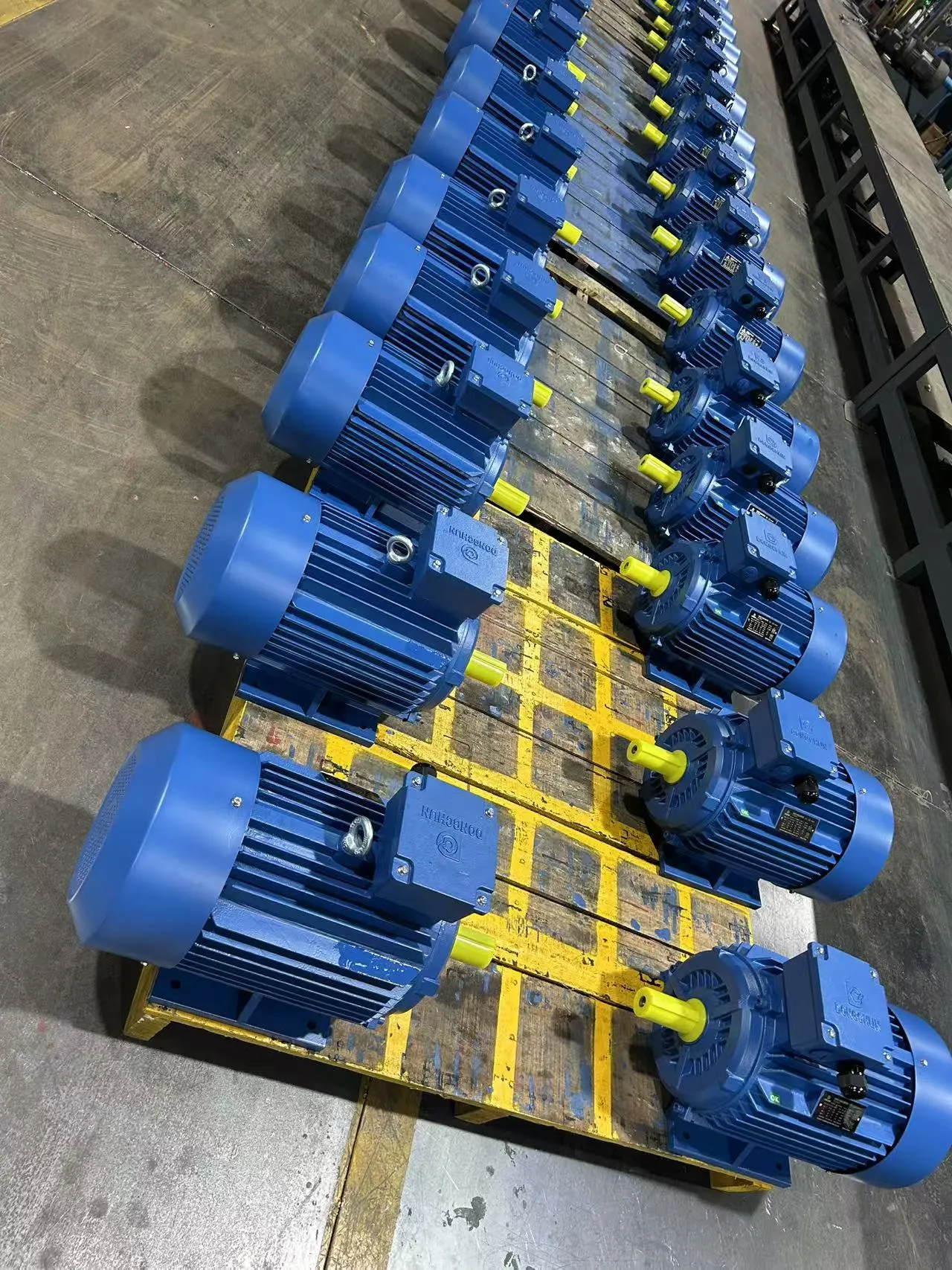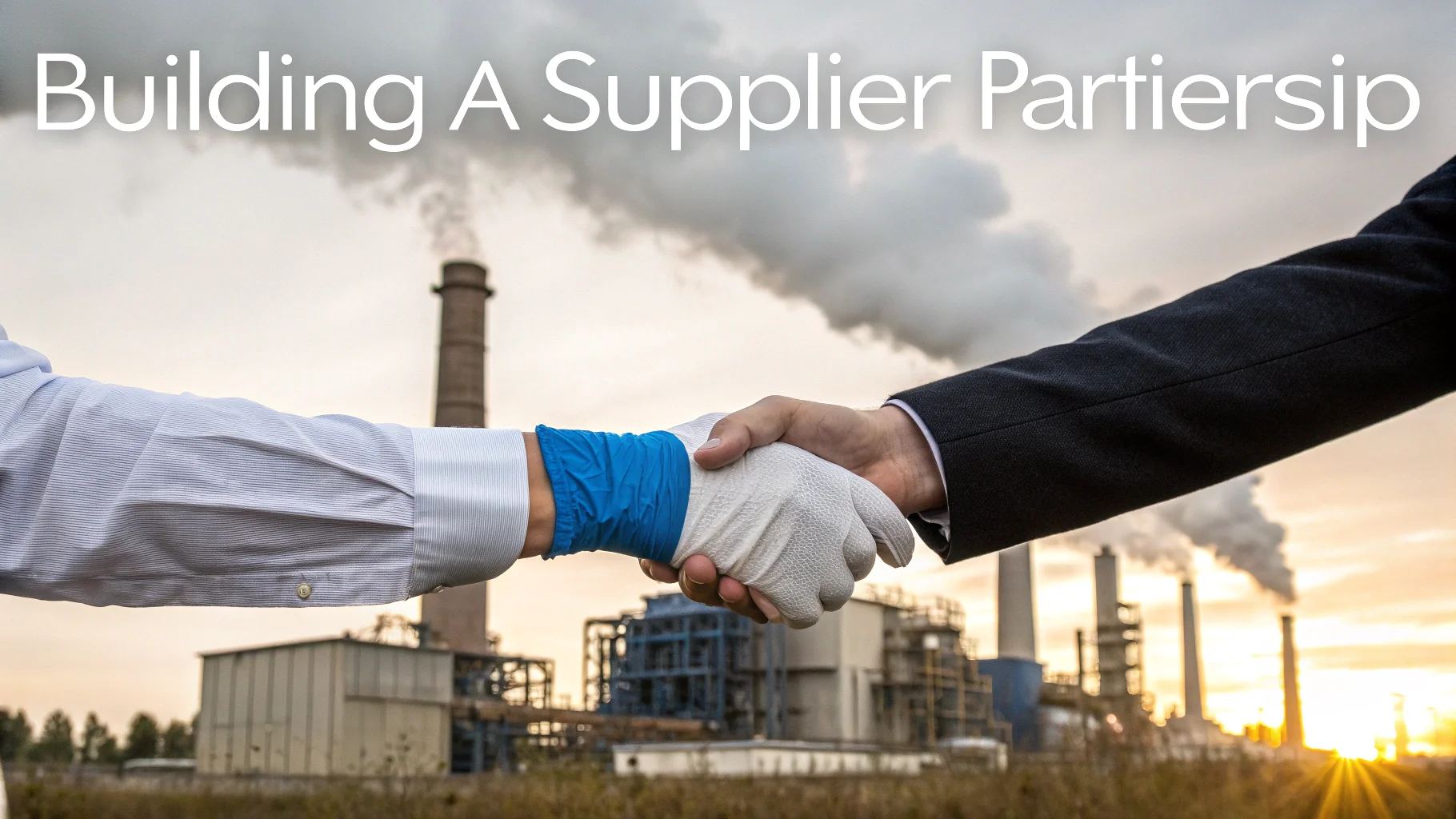Sourcing from China feels like a gamble. A bad supplier can sink your project with delays and poor quality. I'll show you how to find a partner you can trust.
To choose a reliable induction motor manufacturer in China, focus on key traits. Prioritize suppliers with proven export experience1, essential CE/ISO certifications, compliance with international IEC standards, and strong, responsive technical support. These factors indicate a professional and trustworthy operation.
Finding a supplier online is easy. Anyone can build a nice-looking website. But finding a true partner, one who helps your business grow, is the real work. I learned this through years of building my own company. It’s not just about the price; it's about reliability and quality that protect your reputation. A few careful checks upfront can save you from major headaches down the road. Let's walk through the exact steps I use to vet a new manufacturer, so you can source with confidence and build a supply chain that works for you, not against you.
All manufacturers in China are required by law to have ISO 9001 certification.ሐሰት
ISO 9001 is a voluntary quality management standard, not a legal requirement. While many top manufacturers have it, you must always verify their certification.
IEC standards for rotating electrical machines are globally recognized and used in over 170 countries.እውነት
The International Electrotechnical Commission (IEC) provides a global framework for motor standards, ensuring consistency in performance and safety, which is why compliance is a key quality marker.
What are the Key Qualities of a Trustworthy Induction Motor Supplier?
Your project's success depends on the motor's quality. But with so many suppliers claiming to be the best, how do you spot the truly reliable ones? Here's what to look for.
A trustworthy supplier consistently delivers high-quality products. They hold key certifications like CE and ISO, follow international standards like IEC, have a solid export history, and provide excellent, accessible technical support2. These are the non-negotiable signs of a professional partner you can depend on.
When I first started my trading company, I made the mistake of focusing too much on the unit price. I found a supplier with an incredibly low offer and thought I had struck gold. The initial samples looked okay, but the first bulk order was a disaster. The motors had inconsistent performance, and some failed completely. I learned a tough lesson: a reliable partner is defined by their commitment to quality, not just a low price. You need to look deeper than the quote they send you. A great supplier is an extension of your own team, and that means they need to meet a high standard. Let's break down the essential qualities I now insist on.
Product Quality and Consistency
This is the foundation of everything. A good manufacturer has strict quality control3 (QC) processes at every stage, from raw material inspection to final product testing. They should be able to provide you with documentation of their QC procedures.
Certifications and Standards Compliance
Certifications are not just pieces of paper; they are proof of a commitment to global standards. They show that a third party has verified the manufacturer's processes and products.
| Certification/Standard | What It Means for You |
|---|---|
| ISO 9001 | The company has a documented and audited quality management system. This means they are serious about consistency and continuous improvement. |
| CE Marking | The motor meets the European Union's safety, health, and environmental protection requirements. This is essential if you sell in Europe. |
| IEC standards4 | The motor's performance, dimensions, and testing follow international guidelines. This ensures you get a product that performs as expected. |
Proven Export Experience and Technical Support
A manufacturer who has been exporting for years understands the complexities of international logistics, packaging, and communication. They will have English-speaking staff who can provide strong technical support. This is critical for a designer like you, Jacky, who may have specific questions about integrating the motor into your product. A supplier who can't answer your technical questions quickly and clearly is a major red flag.
CE marking is a global certification required for all electronic products worldwide.ሐሰት
CE marking is specific to the European Economic Area (EEA). While recognized elsewhere, other regions like North America have their own standards, such as UL or CSA.
A manufacturer with a long history of exporting to North America or Europe is more likely to understand quality expectations and communication norms for those markets.እውነት
Experience with Western markets often leads to better-aligned quality control systems, packaging standards, and more fluent English-speaking support staff, reducing friction for buyers.
What are the Essential Questions to Ask Before Placing an Order?
You've shortlisted a few suppliers who look promising. Now it's time to dig deeper. Making assumptions can lead to costly mistakes and project delays. Ask the right questions now.
Before you commit, you need clarity. Ask for detailed product specs, customization options, production and delivery timelines, complete warranty terms5, and the exact process for getting after-sales service. Getting these answers in writing is crucial for protecting your project and your investment.
I remember a client who was in a rush to get a project started. He chose a supplier based on a good price and a quick "yes" to his questions. He didn't ask for specifics on the delivery timeline. He assumed "4-week lead time" meant the goods would be at his door in 4 weeks. Instead, it meant the goods would be ready to leave the factory in 4 weeks. Shipping took another 5 weeks. That nine-week total completely derailed his production schedule. This is why you must be specific and leave no room for interpretation. Think of it as creating a checklist to ensure you and the supplier are on the same page about every single detail.
Product and Customization Questions
Your design has specific requirements. You need to know if the supplier can meet them.
- Specifications: "Can you provide a complete datasheet for motor model XYZ, including performance curves, dimensional drawings, and material specifications?"
- Customization: "I need a custom shaft length and a specific connector. What is your process for customizations? What are the associated costs and minimum order quantities (MOQs)?"
Logistics and Timeline Questions
Getting your products on time is critical.
- Lead Time: "What is your production lead time for an initial order of 500 units? What about for subsequent orders?"
- Shipping: "Which Incoterms do you typically use (e.g., FOB, EXW, DDP)? Can you provide an estimated shipping cost and timeline to my port in Canada?"
Warranty and Service Questions
You need to know what happens if something goes wrong.
- Warranty: "What is your warranty period? What exactly does it cover (parts, labor, shipping)? What is the process for making a warranty claim?"
- After-Sales Support: "If I have a technical issue after purchase, who is my direct contact? What are their technical qualifications and working hours?"
| Question Category | Key Question Example | Why It's Important |
|---|---|---|
| Specifications | "Can I get the full performance curve?" | Ensures the motor meets your exact power and torque needs. |
| Customization | "What is the MOQ for a custom winding?" | Determines the feasibility and cost of adapting the motor to your design. |
| Timelines | "What is the production lead time vs. shipping time?" | Prevents misunderstandings and helps you plan your project schedule accurately. |
| Warranty | "What is the exact process for a warranty claim?" | Clarifies your recourse if you receive defective products. |
Incoterms like FOB (Free On Board) mean the seller is responsible for the goods until they are delivered to the buyer's final destination.ሐሰት
FOB means the seller's responsibility ends once the goods are loaded onto the shipping vessel at the port of origin. The buyer is responsible for the main sea freight, insurance, and import logistics.
Asking for a detailed datasheet with performance curves is a standard and reasonable request when vetting a professional motor manufacturer.እውነት
Professional manufacturers have this data readily available and expect serious buyers to request it. A supplier's inability or unwillingness to provide it is a significant red flag about their technical capabilities.
What are the Steps to Verify and Build Long-Term Partnerships?
You've asked the right questions and received good answers. But talk is cheap. You need to verify their claims before you can truly trust them and build a lasting relationship.
To verify a supplier, always request and test samples, check their client references, and conduct a factory audit if the order size justifies it. Build a partnership by starting with a small trial order6, establishing clear communication channels, and providing consistent feedback.
Building a relationship with a supplier is like any other relationship—it’s built on trust and proven performance over time. I never place a large order with a new supplier, no matter how good they seem. I always start with a small trial order. This lets me test not only their product quality in a real-world batch but also their entire process: how they handle the order, their communication, their packaging, and their adherence to deadlines. It’s a low-risk way to see if their actions match their words. A good supplier will understand and respect this approach. They know that a successful trial order is the first step toward a long and profitable partnership for both of us.
Step 1: Verification Through Action
Before you commit significant capital, you must verify the supplier's capabilities.
- Request Samples: This is non-negotiable. Get a few units to test in your own application. Does the motor perform as the datasheet claims? Is the build quality solid?
- Check References: Ask the supplier for contact information for a few of their current clients, preferably in a country and industry similar to yours. A confident, reliable supplier will have happy customers willing to vouch for them.
- Conduct an Audit: For large or critical orders, a factory audit is essential. You can hire a third-party inspection service in China to do this for you. They will provide a detailed report on the factory's equipment, processes, and quality systems. A virtual tour via video call can also be a good, low-cost alternative.
Step 2: Building the Partnership
Once a supplier is verified, the goal is to build a strong, long-term relationship.
- Start with a Trial Order: Place a small, low-risk order first. This is your final test of their entire process, from production to delivery.
- Establish Clear Communication: Designate a single point of contact on both sides. Schedule regular, brief check-ins to discuss ongoing orders and future needs. Use clear, simple language to avoid misunderstandings.
- Provide Feedback: Share your test results and feedback on the products. A good partner will appreciate this information and use it to better serve you. This collaborative approach builds trust and shows that you view them as more than just a vendor.
Third-party factory audits in China are prohibitively expensive, costing tens of thousands of dollars.ሐሰት
Basic factory audits from reputable third-party services in China are quite affordable, often costing only a few hundred dollars, making them a very cost-effective risk management tool for serious buyers.
Starting with a small trial order is a standard industry practice to mitigate risk when working with a new supplier.እውነት
This allows the buyer to test the supplier's product quality, reliability, and communication on a smaller scale before committing to a large-volume order, protecting them from significant financial loss.
ማጠቃለያ
Choosing the right manufacturer is about careful vetting and building trust. Follow these steps, ask the right questions, and verify everything to find a reliable partner for your long-term success.
ማጣቀሻዎች
-
Understanding a supplier's export experience can reveal their reliability and ability to meet international standards. ↩
-
Strong technical support is essential for resolving issues and ensuring smooth integration of products into your projects. ↩
-
Effective quality control processes are vital for maintaining product consistency and reliability, impacting your project's success. ↩
-
IEC standards ensure that motors meet global performance and safety benchmarks, crucial for quality assurance. ↩
-
Understanding warranty terms helps protect your investment and clarifies the manufacturer's responsibilities in case of defects. ↩
-
A trial order allows you to assess a supplier's capabilities and product quality before committing to larger orders. ↩












